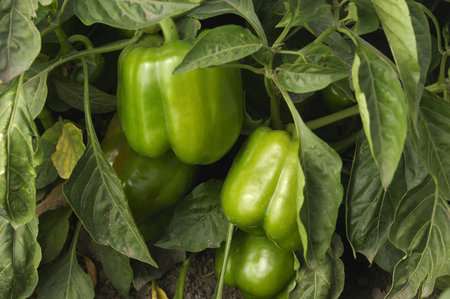New nuclear technology may protect farmer’s crops from pests
By Jennifer Jackson
Insects, watch out – an innovative type of “insect birth control” could change the way farmer’s protect their crops.
Researchers will explore the use of nuclear power as a sterilizing agent for pepper weevils, according to a University of Guelph release.
The study is a collaboration between researchers from the University of Guelph, Bruce Power in Tiverton, Ont., and Nordion, a medical isotope supplier in Ottawa.
Pepper weevils are particularly troublesome to kill due to their feeding habits, according to Cynthia Scott-Dupree, lead researcher of the study and professor at the University of Guelph. The insect burrows into peppers and damages the crop from the inside.
“It is very difficult to control these insects when they are hidden inside the pepper,” Scott-Dupree said in the release.
The pest is a costly problem for producers. Pepper weevils were responsible for $83 million worth of crop damage in 2016. And this figure does not include the management or treatment costs associated with the pests, according to the Ontario Greenhouse Vegetable Growers.

GomezDavid/iStock/GettyImagesPlus
Researchers will use a radioactive form of cobalt, cobalt-60, that is created at Bruce Power. Cobalt-60 is currently used in treatment of brain tumours and also to sterilize medical tools.
Scott-Dupree and her team will use the cobalt-60 radiation to sterilize weevils and release those weevils into greenhouses. This technique is called the sterile insect technique (SIT).
“When (the sterile insects) mate, the eggs will not be viable, no progeny results and the pest population will decrease,” she said. “We want to move away from insecticide as much as possible and SIT provides us another tool in our pest management toolbox.”
As far as human health risks, “there is no danger of the pepper weevils spreading any radiation following sterilization, so it is also safe for people,” said Scott-Dupree.
This type of pest control could have immense benefits for the agricultural industry, according to Mike Rencheck, Bruce Power’s chief executive officer and president.
“This innovative research could improve Ontario’s agricultural sector by reducing the impact of pests on produce, while also providing a possible gateway to the future of farming,” he said.
Farms.com has reached out to Scott-Dupree for further information.